C6.16 Academic Phrasebank for Theses¶
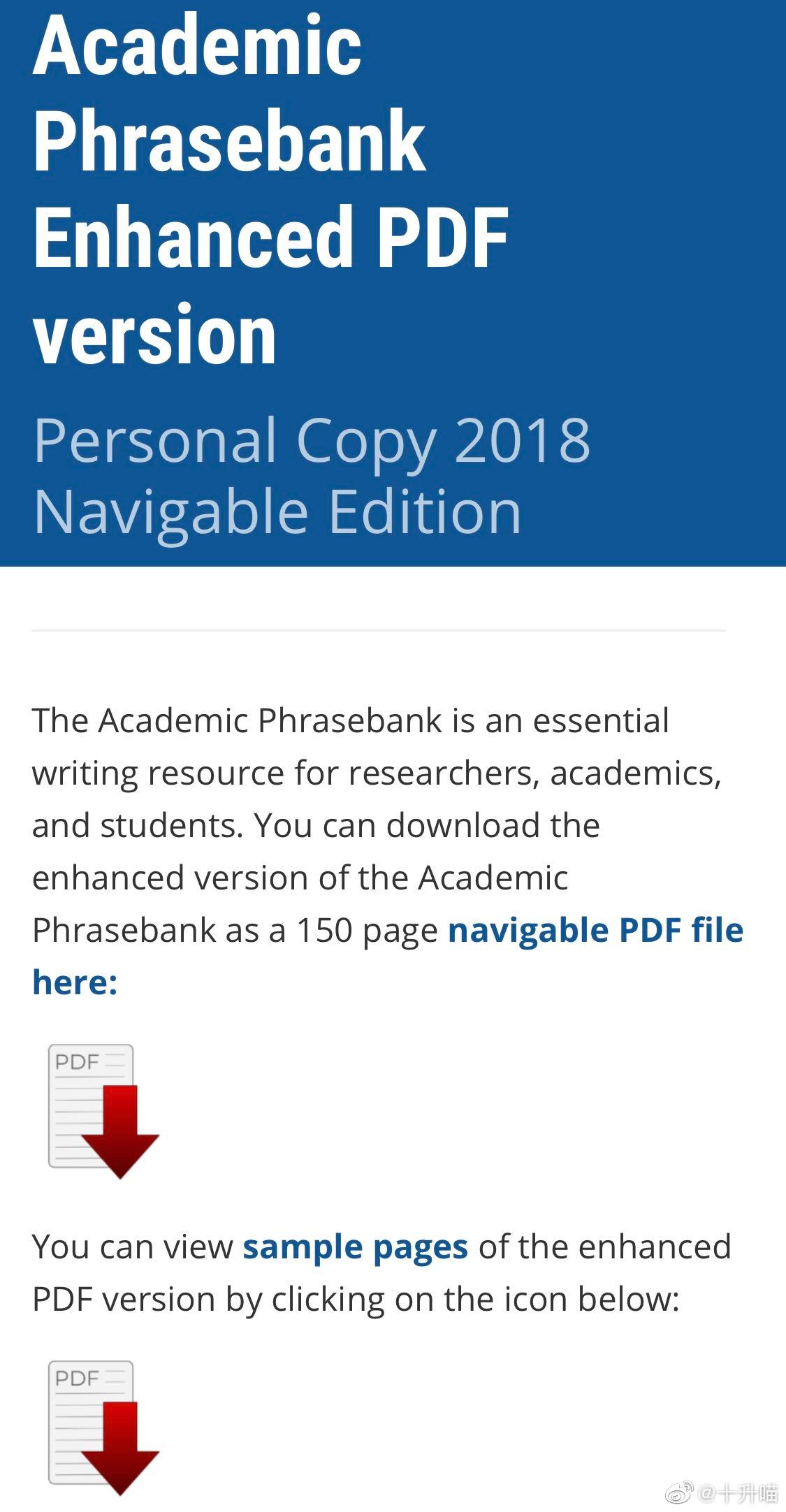
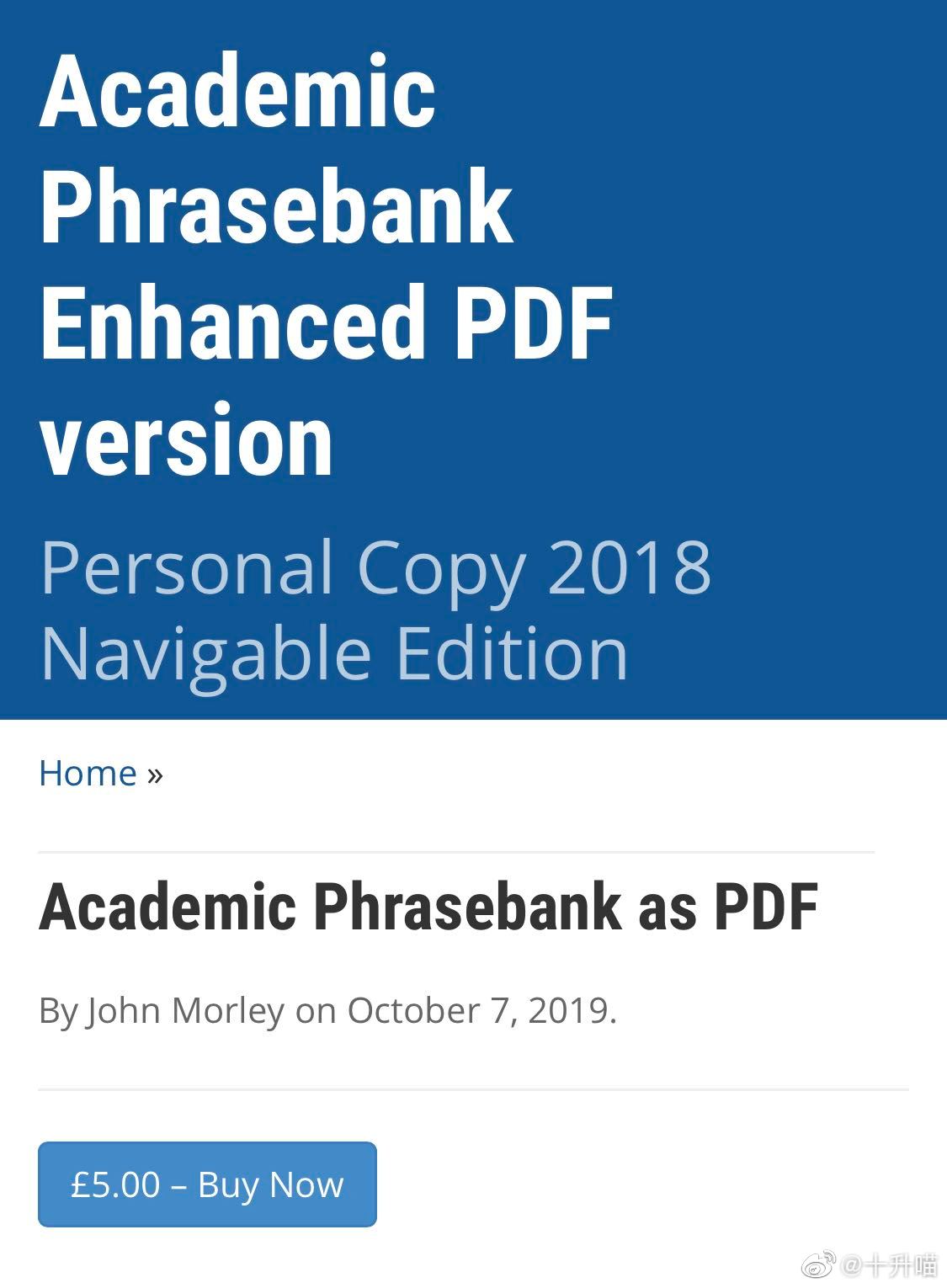
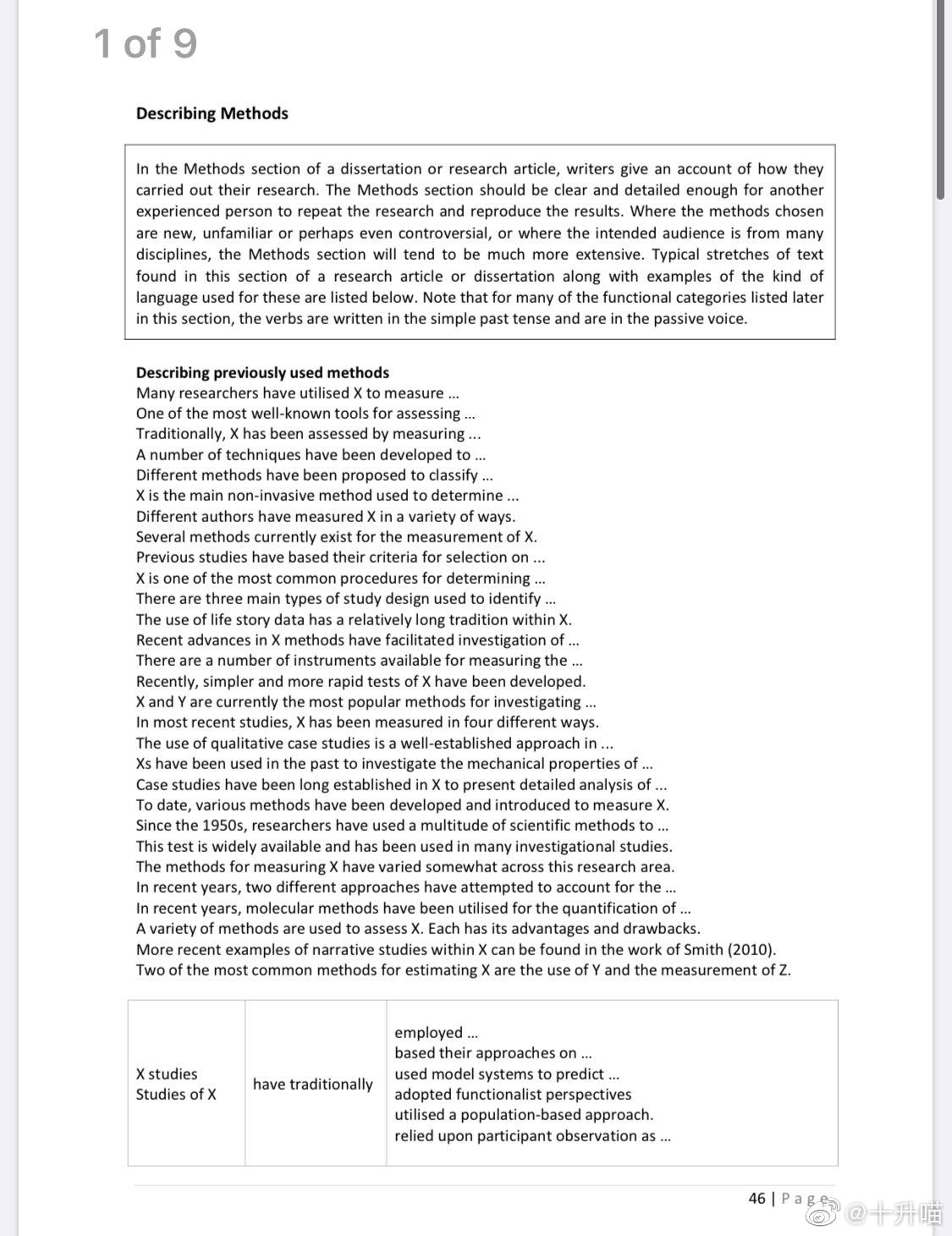

introduction work
referring to sources
describing methods
Reporting results
Discussing findings
Writing conclusions
Being Cautious
Being Critical
Classifying and Listing
Compare and Contrast
Defining Terms
Describing Trends
Describing Quantities
Explaining Causality
Giving Examples
Signalling Transition
Writing about the Past
Here, I’ll give a simple example. Basically, all essays, reports, etc., require a conclusion. So just click on the "Writing conclusions" section in the menu, and the page will automatically jump to the academic phrase library for conclusions, as shown in the picture below:
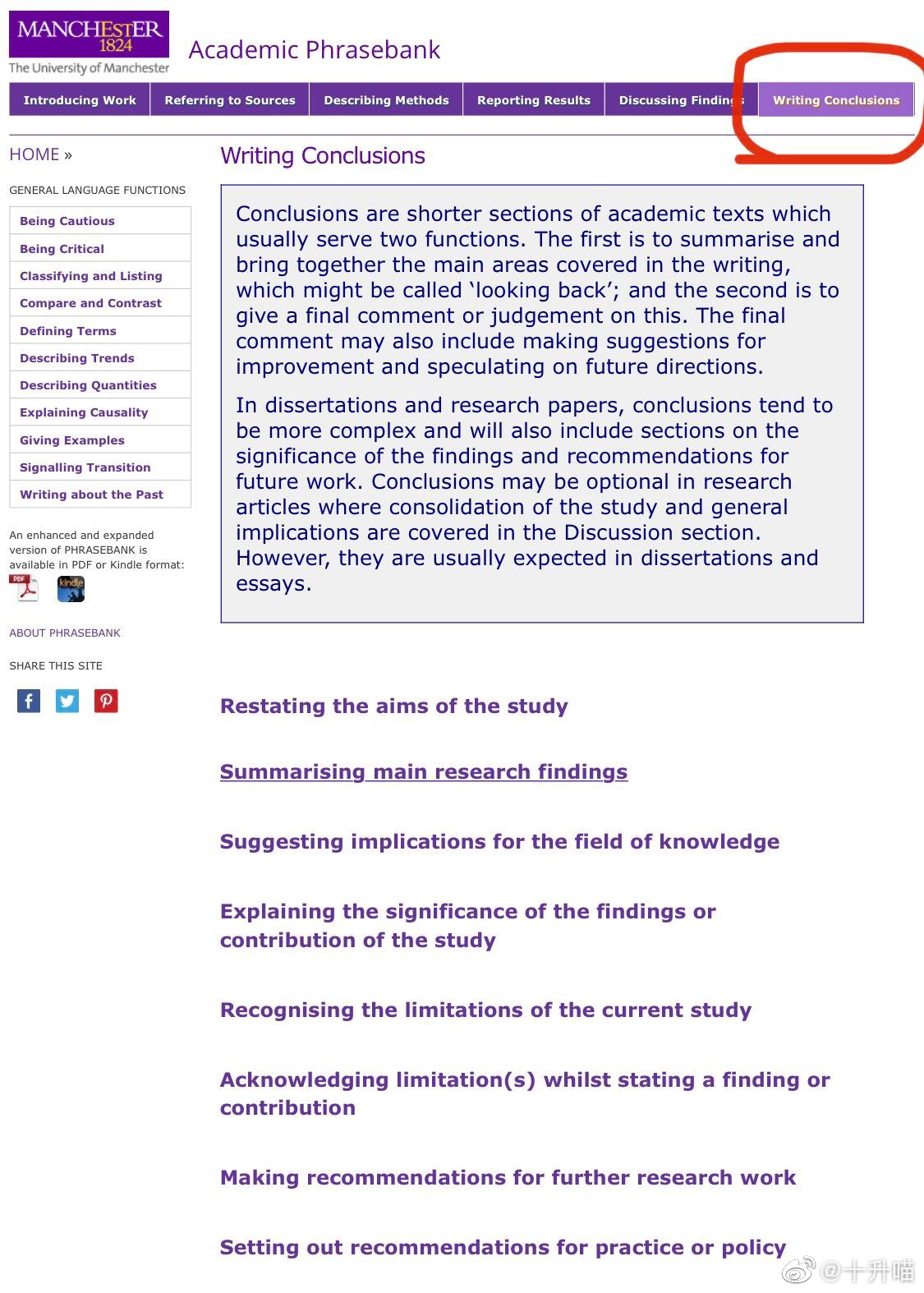
(1)Restating the aims of the study
(2)Summarising main research findings
(3)Suggesting implications for the field of knowledge
(4)Explaining the significance of the findings or contribution of the study
(5)Recognising the limitations of the current study
(6)Acknowledging limitation(s) whilst stating a finding or contribution
(7)Making recommendations for further research work
(8)Setting out recommendations for practice or policy
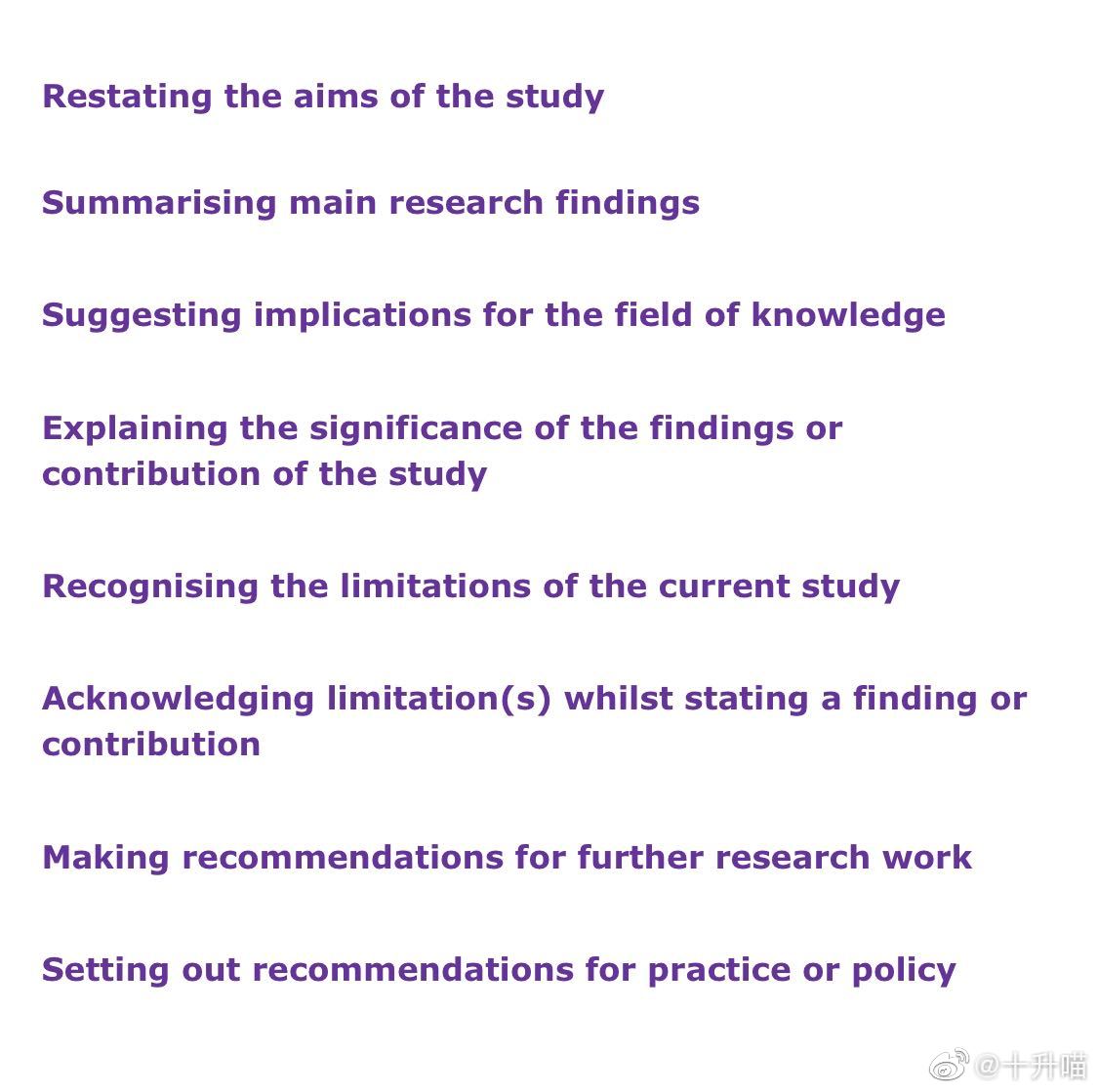
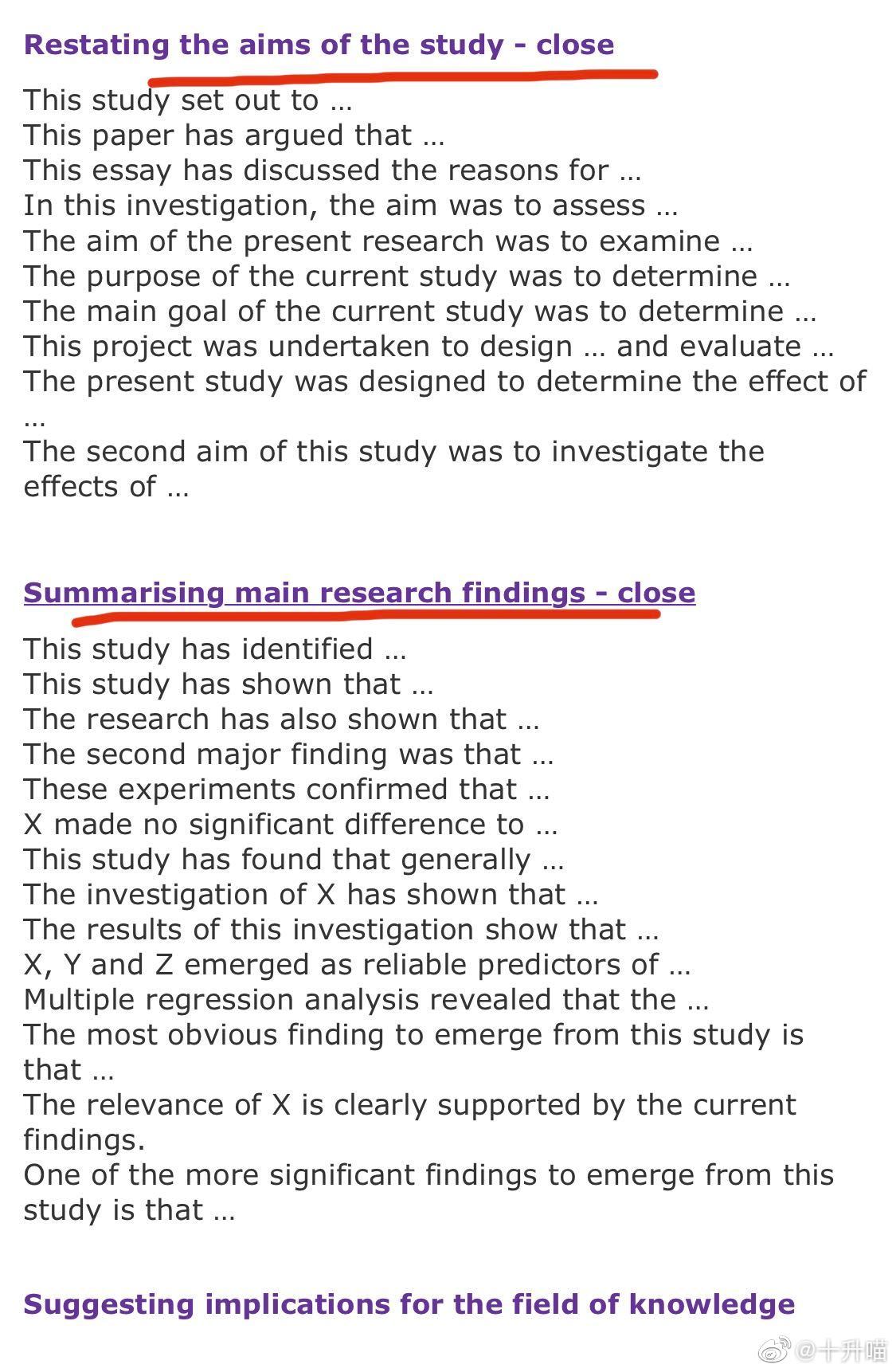
As shown in the picture above, (1) "Restating the aims of the study" includes 11 academic sentences that can be used as reference phrases for "restating the research aims of the essay or report" in the conclusion section.
This study set out to…
This paper has argued that…
This essay has discussed the reasons for…
In this investigation,the aim was to assess…
The aim of the present research was to examine…
The purpose of the current study was to determine…
The main goal of the current study was to determine…
This project was undertaken to design…and evaluate…
The present study was designed to determine the effect of…
These condaim of this study was to investigate the effects of…
A reminder from Shishengmiao:
Try not to copy large amounts of original content from the Academic Phrasebank directly in academic writing. Of course, some phrases are neutral and general—like universal sentences—and can be used as they are. But for other phrases or sentences, it’s better to paraphrase or rephrase them instead of copying verbatim. If most of your content is too similar to the original, your Turnitin similarity score will be very high.
Some content in the Academic Phrasebank may not be suitable for highly rigorous writing such as certain theses. However, it can help you generate ideas and broaden your thinking when you’re stuck.
Specific requirements for essays, reports, etc., vary across UK universities—and even across different programs within the same university. Some professors may require their students to follow a specific reference format they provide. So be sure to check with your professor about any special instructions or precautions.
In general, relevant writing guidelines are available on the university’s official website, in the library, or shared by professors during classes. Some universities also introduce these requirements during orientation week for new students.
Well, I recommend using this English academic phrase library wisely. I believe it will help you write essays and other academic content with greater ease. If you can summarize and refine your own personalized version, it will be even more beneficial.